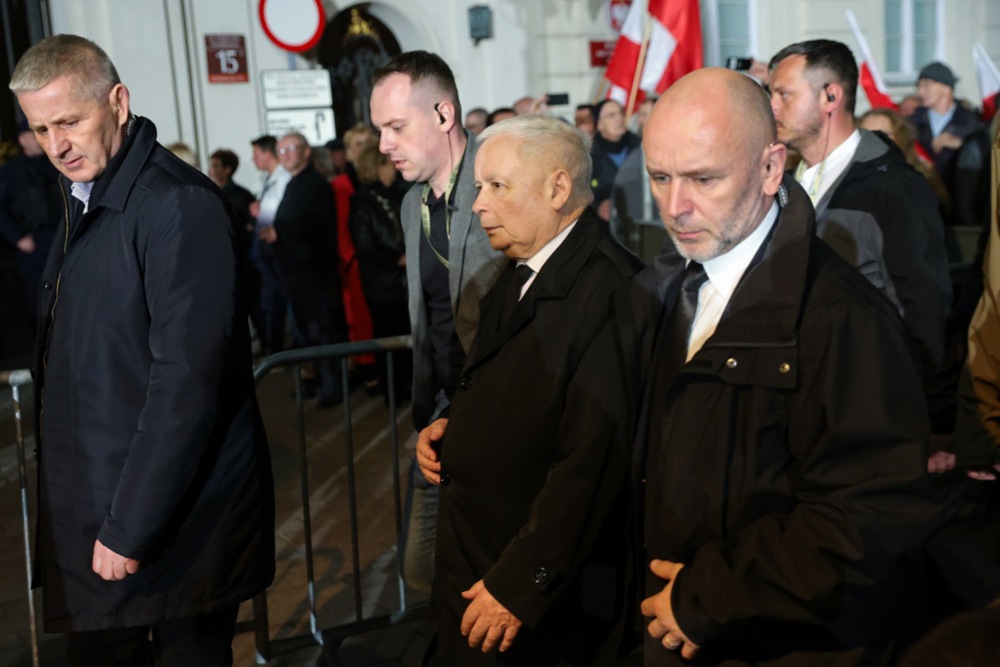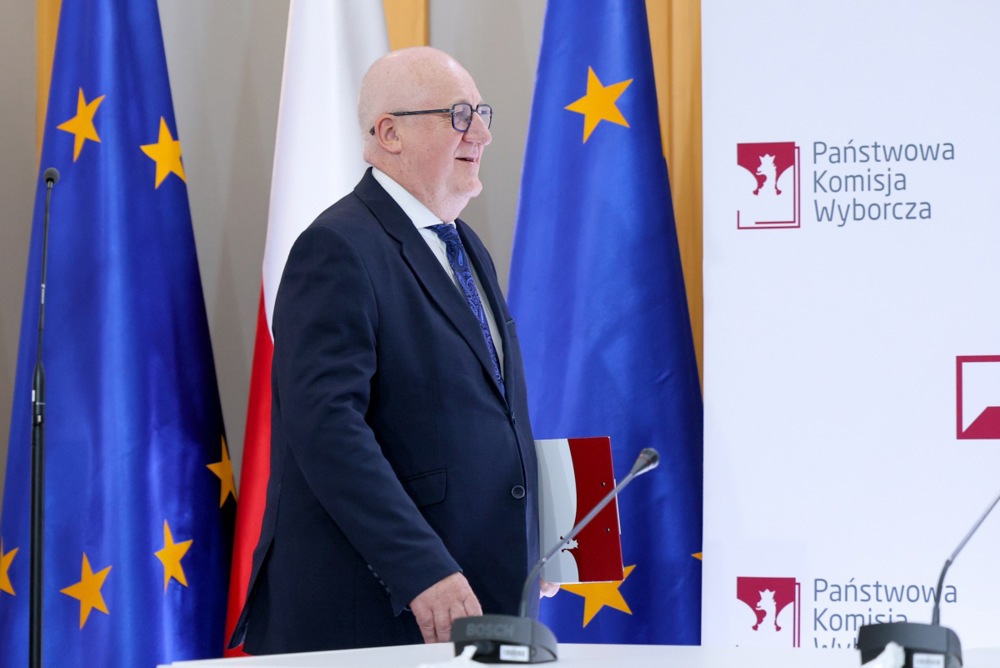The chief justice of Poland’s Constitutional Tribunal, or court, Bogdan Święczkowski has sent prosecutors a submission accusing Prime Minister Donald Tusk of staging a coup d’état.
He said on February 5 that was because of the government’s policies of disregarding court rulings and allegedly breaking the law regarding national media and the public prosecution service.
The Tusk government had recently voted to not recognise the constitutional court Święczkowski heads on allegations that three of its 15 members were elected illegally in 2015. The administration is also refusing to recognise any of the rulings issued by the court.
“This is not a coup which involves putting soldiers on streets, it is more of a creeping coup involving the change of the system of government,” said Świeczkowski.
He added that, after his appeals for dialogue with his court were rejected by the government, he has informed the public prosecution service of an alleged crime against the Constitution. He claimed that had been committed by the Tusk and the Speaker of Parliament Szymon Hołownia, as well as other officials in the current administration.
Świeczkowski added that he had submitted e a 60-page document to the prosecutors. In that, he said, he alleged that the cited individuals “have engaged in an organised group aiming at changing the system of government and eliminating the top echelons of the judiciary such as the constitutional court, the Supreme Court and the National Judicial Council, via decisions taken by the executive.”
It included accusations of Tusk’s government taking over public media and public prosecutors office by force, ignoring court decisions and the status of courts and judges, as well as violations of the rights of the opposition.
If proven, the charges of attempting a coup to overthrow the system of government could lead to indicted individuals being jailed for a minimum of 10 years and up to a life sentence.
Tusk appeared to take the matter lightly when posting on X, attaching a laughing emoji to the words “coup d’état“.
The post included a video of him playing table tennis and, when asked by his staff about Święczkowski’s allegations, he put a bat against his head and said: “ Give it a rest. We have important things to do around here. We’ll deal with this later.”
It continued, to show him laughing together with his staff.
Zamach stanu ? pic.twitter.com/h9STStBt1E
— Donald Tusk (@donaldtusk) February 5, 2025
Święczkowski’s move was welcomed by the leader of the opposition Conservatives (PiS) Jarosław Kaczyński.
He told reporters on February 5 he had “on numerous occasions argued that the take over of public media, public prosecutors and the disregard for decisions taken by judicial bodies constitutes a coup d’état”.
Reacting to Tusk’s mocking post of Święczkowski’s allegations, Kaczyński said he hoped “that in time the smiles will be wiped off the faces of Tusk and his allies”.
The Tusk government was elected in 2023 on a platform of “restoring the rule of law” and almost immediately upon its arrival in office the European Commission unblocked Poland’s post-pandemic funds.
Those had been withheld in reaction to the previous PiS government’s judicial reforms,, which the European Commission and the European Court of Justice had viewed as undermining the independence of the Polish judiciary and violating the rule of law.
No laws have been passed since Tusk came into office. The government has proceeded to make personnel changes based on parliamentary resolutions and administrative orders, including a decision to not recognise the constitutional court and some chambers of the Supreme Court.
It has also refused to honour a court order authorising the payment of state subsidies due to the opposition PiS. That was based on allegations that the party had benefited from illegal spending by public bodies, a case rejected by the chamber of the Supreme Court the Tusk government then refused to recognised.
The commission, when asked by Brussels Signal to comment on the case of opposition funding in Poland being removed, responded in January that it was a matter for member states and their courts.
It added that it “took note of the decision of the Polish National Electoral Commission accepting the funding statement of the Conservatives (PiS) ”, without making any comment regarding funding.
At the time of writing, there had been no reaction on the latest developments in Poland from the US State Department, which under the then-US president Joe Biden administration had been supportive of Tusk’s claims on restoring the rule of law.
Despite that, both new US Vice President JD Vance and State Secretary Marco Rubio, ahead of their arrival in office on January 20, had publicly criticised the Tusk government for its alleged abuse of power.





